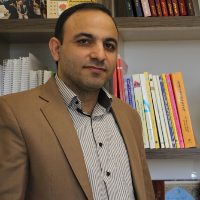The Impact of Play Therapy Based on Cognitive-behavioral Model on the Social Skills of Preschool Children with Attention Deficit Hyperactivity Disorder
Author(s):
Article Type:
Research/Original Article (دارای رتبه معتبر)
Abstract:
Background and Purpose
Most pre-school children with attention deficit hyperactivity disorder (ADHD) lack the appropriate social skills and face essential problems in being adapted to different environments and making friendships. Some experts believe that play therapy based on cognitive-behavioral model can help the children with ADHD to acquire social skills and reduce their behavioral problems. Therefore, the present study was conducted to investigate the effectiveness of play therapy based on cognitive-behavioral model on the social skills of preschool boys with ADHD.
Method
The present research was an experimental study with pretest-posttest control group design. The participants were thirty 5 to 6- year-old boys with ADHD who were selected by convenience sampling from the pre-school centers of Aran va Bidgol city over the academic year 2017-2018 and then divided into the experimental and control groups, each one consisting of 15 individuals. The experimental group received 12 sessions of 40-minute play therapy based on cognitive-behavioral model, whereas the control group received no therapy. Social Skills Rating System (SSRS) (Gresham & Elliot, 1990) was the instrument used in this research. Data collected by the questionnaires at pretest and post-test stages were analyzed by using multivariate analysis of covariance (MANCOVA) and version 23 of SPSS software.
Results
Analysis of the collected data by MANCOVA showed that after the intervention, the mean score of the social skills in the experimental group was significantly higher than the control group ((P<0.0001, F=57.77). Also, the mean scores on the subscales of cooperation (P<0.0001, F=64.30), self-assertiveness (P<0.0001, F=54.48), and self-control (P<0.0001, F=39.09) were significantly higher in the experimental group compared to the control group.
Conclusion
Based on the results of this study, it can be concluded that play therapy based on cognitive–behavioral model improves the social skills, cooperation, self-assertiveness, and self-control in the pre-school children with ADHD. Since the play therapy based on cognitive-behavioral model mainly uses the emotional, practical and non-verbal activities and is theoretically based on individual-environment interactions; hence, it has shown to be effective in improving the social skills of children with ADHD.Keywords:
Language:
Persian
Published:
Quarterly Journal of Child Mental Health, Volume:6 Issue: 2, 2019
Pages:
27 to 39
magiran.com/p2022536
دانلود و مطالعه متن این مقاله با یکی از روشهای زیر امکان پذیر است:
اشتراک شخصی
با عضویت و پرداخت آنلاین حق اشتراک یکساله به مبلغ 1,390,000ريال میتوانید 70 عنوان مطلب دانلود کنید!
اشتراک سازمانی
به کتابخانه دانشگاه یا محل کار خود پیشنهاد کنید تا اشتراک سازمانی این پایگاه را برای دسترسی نامحدود همه کاربران به متن مطالب تهیه نمایند!
توجه!
- حق عضویت دریافتی صرف حمایت از نشریات عضو و نگهداری، تکمیل و توسعه مگیران میشود.
- پرداخت حق اشتراک و دانلود مقالات اجازه بازنشر آن در سایر رسانههای چاپی و دیجیتال را به کاربر نمیدهد.
In order to view content subscription is required
Personal subscription
Subscribe magiran.com for 70 € euros via PayPal and download 70 articles during a year.
Organization subscription
Please contact us to subscribe your university or library for unlimited access!



